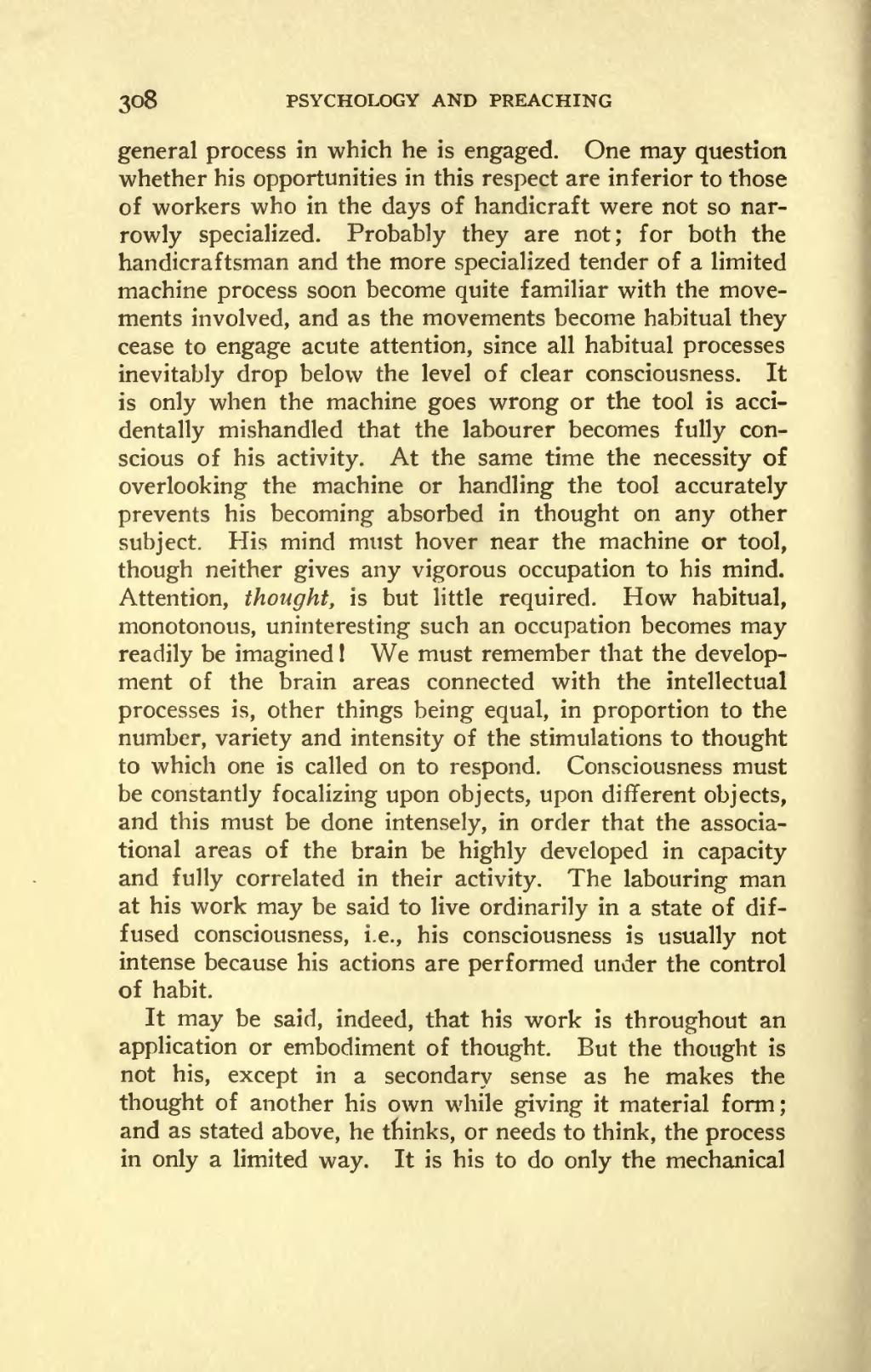308 PSYCHOLOGY AND PREACHING
general process in which he is engaged. One may question whether his opportunities in this respect are inferior to those of workers who in the days of handicraft were not so nar rowly specialized. Probably they are not; for both the handicraftsman and the more specialized tender of a limited machine process soon become quite familiar with the move ments involved, and as the movements become habitual they cease to engage acute attention, since all habitual processes inevitably drop below the level of clear consciousness. It is only when the machine goes wrong or the tool is acci dentally mishandled that the labourer becomes fully con scious of his activity. At the same time the necessity of overlooking the machine or handling the tool accurately prevents his becoming absorbed in thought on any other subject. His mind must hover near the machine or tool, though neither gives any vigorous occupation to his mind. Attention, thought, is but little required. How habitual, monotonous, uninteresting such an occupation becomes may readily be imagined ! We must remember that the develop ment of the brain areas connected with the intellectual processes is, other things being equal, in proportion to the number, variety and intensity of the stimulations to thought to which one is called on to respond. Consciousness must be constantly focalizing upon objects, upon different objects, and this must be done intensely, in order that the associa- tional areas of the brain be highly developed in capacity and fully correlated in their activity. The labouring man at his work may be said to live ordinarily in a state of dif fused consciousness, i.e., his consciousness is usually not intense because his actions are performed under the control of habit.
It may be said, indeed, that his work is throughout an application or embodiment of thought. But the thought is not his, except in a secondary sense as he makes the thought of another his own while giving it material form; and as stated above, he thinks, or needs to think, the process in only a limited way. It is his to do only the mechanical
�� �
